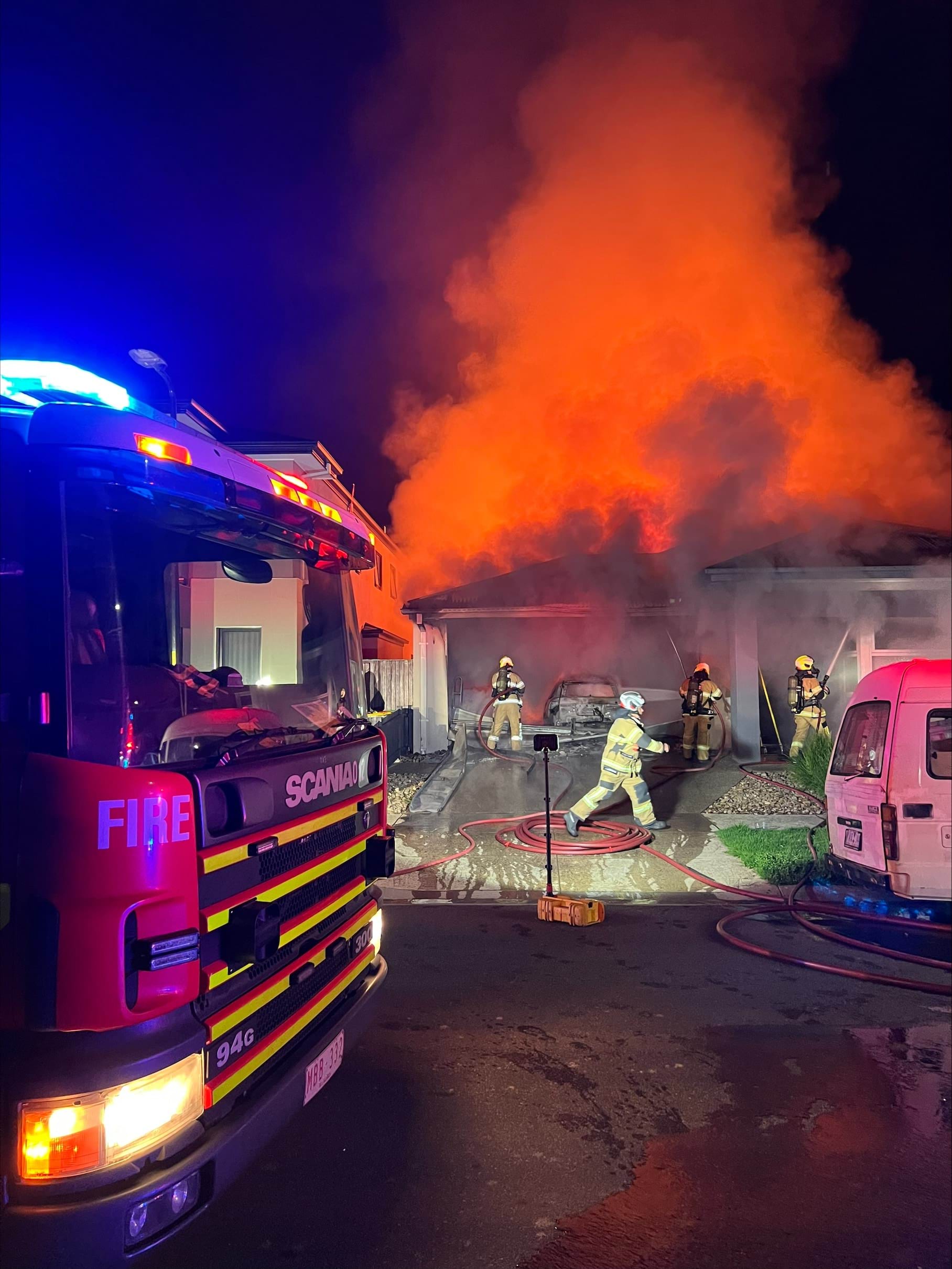- Published:
- Monday 26 August 2024 at 1:35 pm

Victorian fire services are urging householders to make fire safety in the garage a vital home project this winter.
The occurrence of garage fires across the state has led Fire Rescue Victoria (FRV) and the Country Fire Authority (CFA) to encourage residents to clean up potential hazards and install smoke alarms.
Fire Rescue Victoria (FRV) Deputy Commissioner Community Safety Joshua Fischer said that fires could quickly take hold in garages due to the presence of items such as gas cylinders, petrol cans, lithium-ion batteries and other chemicals.
“Fires that start in garages can spread to your family home in a matter of minutes. As many houses are designed with adjoining garages, it makes sense to ensure that your garage has a working smoke alarm installed,“ he said.
“It’s worth inspecting the condition of the electrical items stored in your garage and if you see any damage, disconnect them from the power and ensure repairs are done by a certified tradesperson.
“If you have items powered by lithium-ion batteries, such as power tools, e-scooters and e-bikes, only use the chargers and cords originally supplied with that device and check for any damage. Clean out the clutter in your garage, so if a fire does break out, it is less likely to spread.”
CFA Chief Officer Jason Heffernan said in 2023, CFA firefighters responded to 51 house fires that started in the garage, car port or vehicle storage area - compared to around 28 in 2022.
“The main cause of these fires was mechanical failure, often involving electrical equipment,” CO Heffernan said.
“We recommend installing an interconnected smoke alarm in your garage if it’s attached to your house.
“It’s also advisable to put smoke alarms in rooms where you charge devices and equipment, as they have the potential to catch alight – and this includes your garage.”
A timely reminder of garage fire safety came when FRV and CFA responded to a house fire on Whitfield Crescent in Craigieburn in May this year, following multiple calls to Triple Zero (000).
Crews arrived on scene within minutes to find a garage, fully involved in fire, spreading to the roof of the adjoining single-storey dwelling. A family of five evacuated the home prior to brigade arrival.
Firefighters in breathing apparatus worked to extinguish the fire, bringing the incident under control within 70 minutes and containing the fire to the garage and the roof.
Flammable liquids, stored in the garage, were impacted by fire, hindering extinguishment efforts. The cause of the fire was deemed accidental.
Safety Tips:
- CFA recommend installing an interconnected smoke alarm in your garage if it's attached to your house.
- CFA recommend putting smoke alarms in rooms where you charge devices and equipment, such as the garage.
Electrical
- Turn off all electrical appliances at the wall when they’re not being used to reduce the risk of electrical fires starting.
- Don’t use faulty or damaged cords or equipment. Regularly check for damage as they can start a fire.
Charging devices & Lithium-ion batteries
- Don’t leave charging devices unattended
- Avoid charging batteries or devices overnight.
- Avoid leaving batteries or devices unattended while they are on charge.
- Only use chargers that are supplied with the equipment or device, or certified third-party charging equipment that is compatible with the battery specifications.
- Always follow the manufacturers’ charging and operation instructions.
- Only use chargers that meet Australian Standards – look for the Regulatory Compliance Mark.
- Make sure your charger is the correct voltage for the device.
- Check that your charger, power socket and cables are in good condition
- Make sure your equipment isn't overheating or showing signs of damage.
- Unplug the device when it finishes charging.
- Charge larger devices, like e-bikes and e-scooters away from doorways so there is a way to get out if a fire starts.
Storage
- Remove rubbish and clutter to make your home more fire safe.
- Keep chemicals and petrol away from fire and other heat sources, and away from children.
- Make sure you wash any rags or containers that have come into contact with chemicals or petrol after use, and before throwing in the rubbish. Even tiny traces or just the fumes from the chemicals can start a fire.
Updated